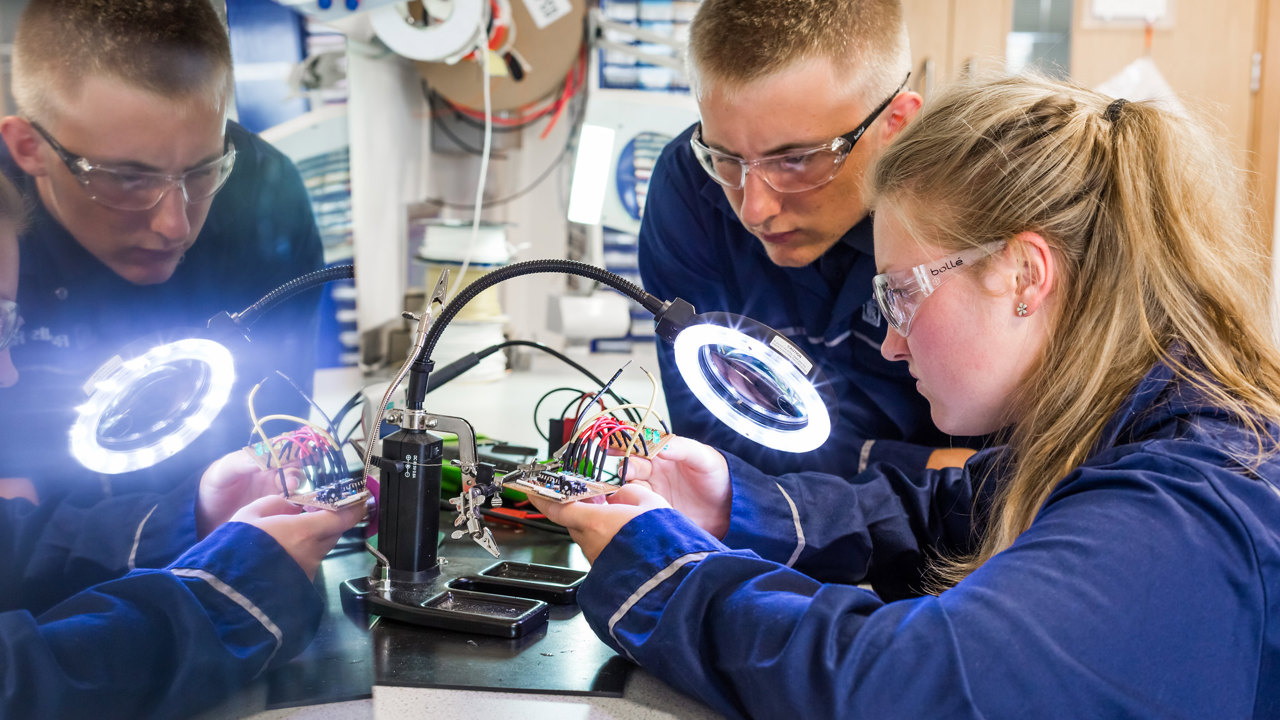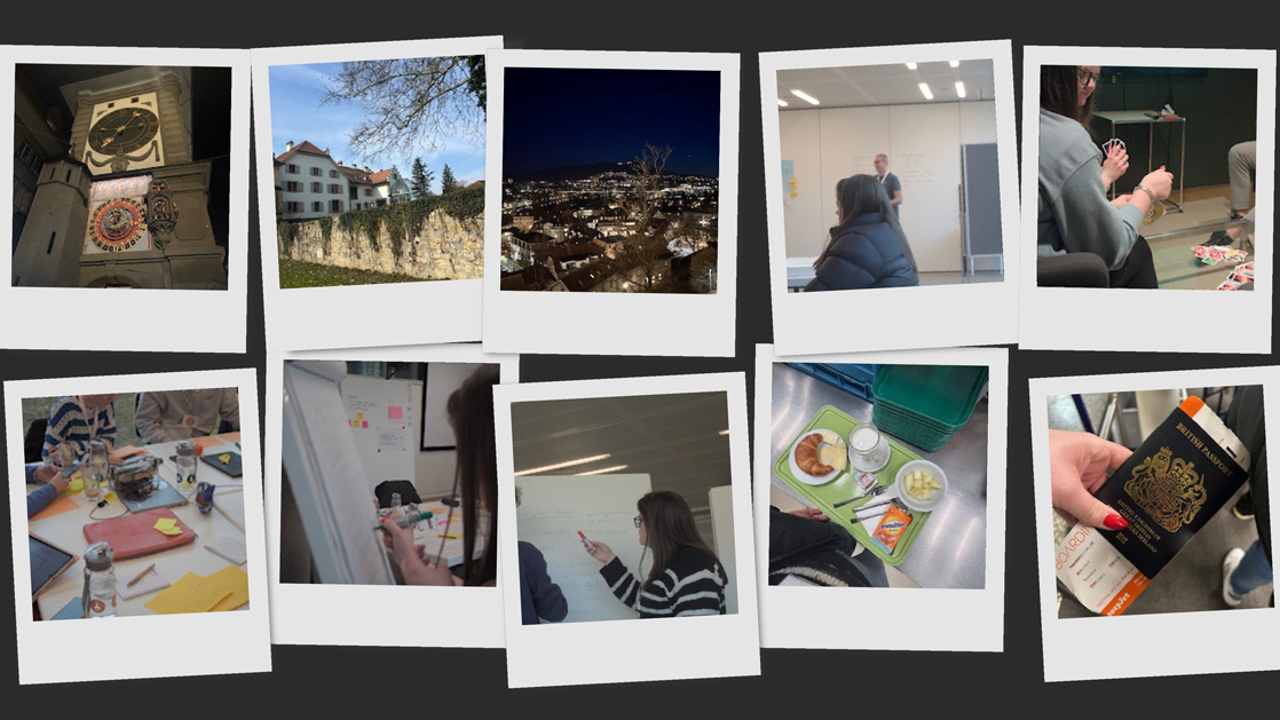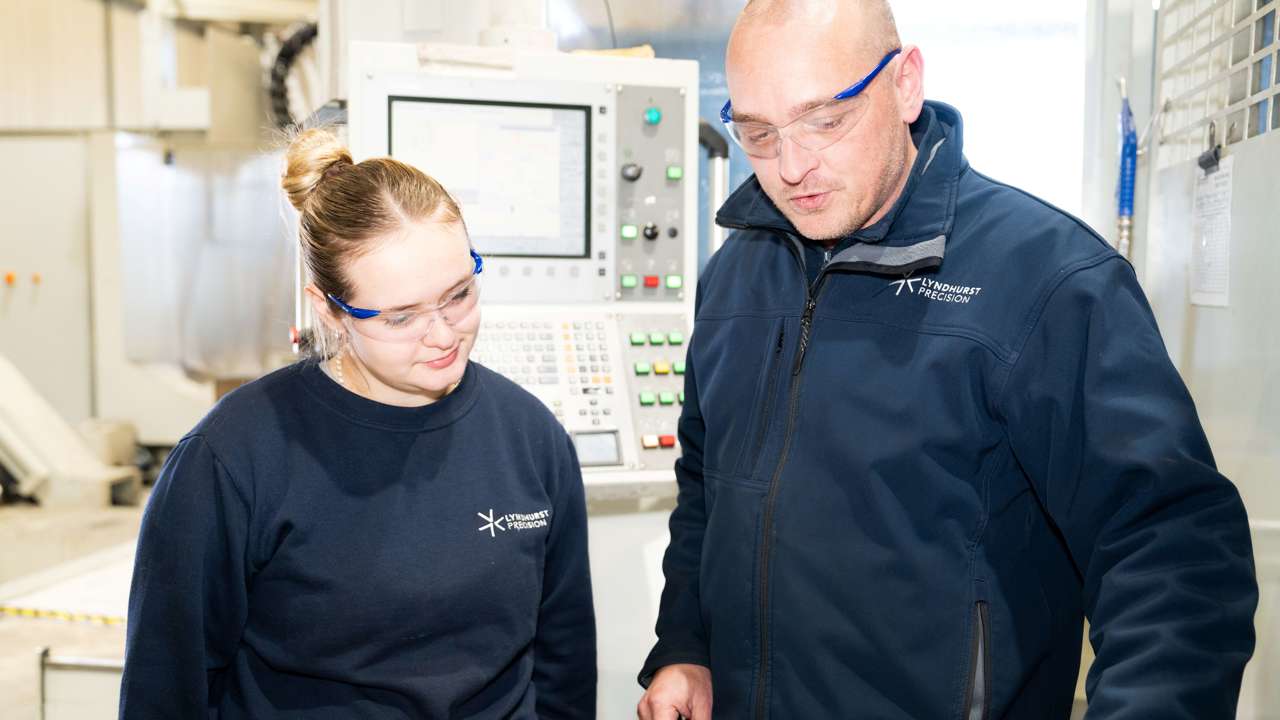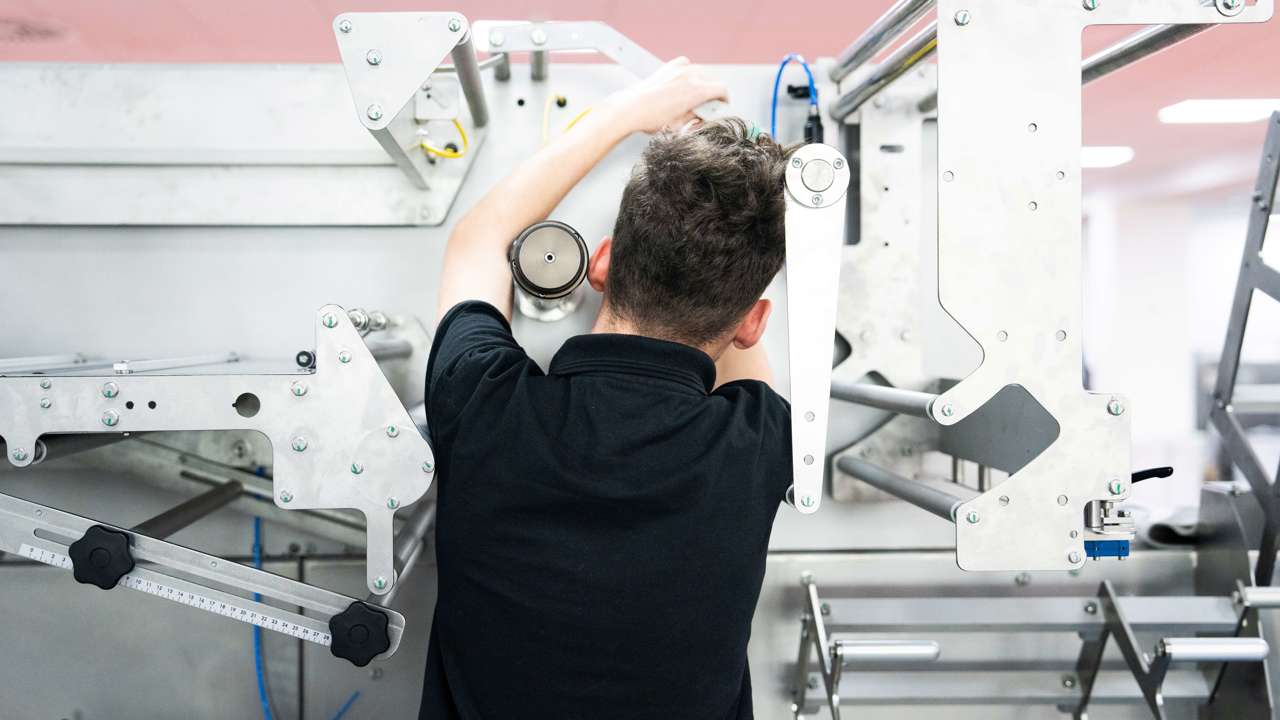There is an urgent need for more apprentices
By Suzanne King, Policy and Voice Manager, EngineeringUK
Apprenticeships have been around for a long time. According to the House of Commons library, the first apprenticeships can be traced back as far as the Middle Ages.

Fast-forward to 2023 and apprenticeships have never been more relevant or important. They remain at the heart of the vocational education system and it’s great have a dedicated week each year to recognise them - National Apprenticeships Week – which is being celebrated this week.
Unlocking opportunities
I feel passionately about apprenticeships and their power to unlock opportunities for young people, including career pathways into engineering, technology and manufacturing. What’s more, demand for technical skills in these sectors is on the up.
Technology and innovation are crucial drivers of economic growth and an ever-increasing part of all our day-to-day lives – from health tech solutions to food sustainability, modern transport through to renewable energy.
Against this backdrop it is clear to see why the UK needs thousands of new engineers and technicians entering the UK workforce year on year - doing what they do best: innovating, problem-solving and pushing boundaries.
So, what’s the problem?
Just when there is an urgent need to grow the number of engineering and technology apprentices, the numbers are simply not where we need them to be. Despite a modest uptick last year, engineering-related apprenticeship starts in England are still 9% lower than they were back in 2014/15. What’s more, the uptake varies by subject with a worrying 34% decline for engineering and manufacturing technologies.
The figures also give us cause for concern in relation to diversity. For example, only 14.2% of those starting engineering-related apprenticeship are female, compared to 50.8% across all subject areas.
The inquiry so far
So when EngineeringUK decided to partner up with Lord Willetts and Lord Knight on a new inquiry about engineering and technology apprenticeships, called Fit for the Future, I was keen to get stuck in.
Since the launch last month, the interest we have seen so far to the call for evidence has been positive and it tells us just how much this subject matters to people. It seems the inquiry has struck a chord. I have also been genuinely encouraged by the collective desire to tackle the barriers for young people, employers and providers and the real sense of commitment to working together to find solutions.
To solve a problem you first need to understand it
In true engineering style the inquiry seeks to take the issues apart, so we can see what we are dealing with. For example, why are some engineering and technology apprenticeship subjects dropping and others growing? Why is awareness of apprenticeships among young people much higher in London than say Yorkshire and the Humber? Why has there been a drop in young people taking entry level apprenticeships? Why are so many young people not reaching the end of their apprenticeship? These are just some of themes we expect the inquiry to delve into, but we are keen to see what other threads emerge as we look at the responses.
Gathering evidence, insights and ideas
As part of the inquiry call for evidence we are eager to cast the net wide. We really want to capture evidence, insights and ideas from a range of organisations and individuals including young people, youth organisations, employers of all sizes, think tanks, FE providers, charities, engineering institutions, employer bodies, academics and more.
Most importantly, this inquiry is driven by the desire to grow and sustain engineering and technology apprenticeships for the future. I hope that by understanding what works well and what needs to change, this inquiry can help to inform apprenticeship policy in a way that boosts opportunities for future generations of young engineering and technology apprentices. By sharing your evidence and insights, you can play your part.












